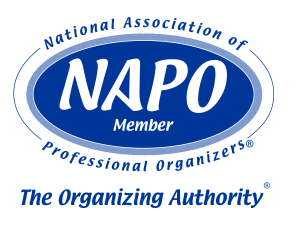 As part of my coaching business, clients often call me for assistance when they are facing stressful situations like interviews, presentations, or crucial conversations with friends, family, or employees.
As part of my coaching business, clients often call me for assistance when they are facing stressful situations like interviews, presentations, or crucial conversations with friends, family, or employees.
When we are faced with stressful situations that we have not encountered before, our brain doesn’t react as quickly or efficiently as we would like it to . . . or sometimes it doesn’t work at all and we just get stuck. Visualizing situations before they happen can help us be more prepared.
In actuality, we unconsciously visualize situations and react to them all day long. For example:
- Driving: From an experience, visualization, and reactionary perspective, we know what to do when a car pulls in front of us or slams on their brakes. Because it’s probably happened before, we can quickly visualize and react appropriately.
- Walking: If we are on a busy sidewalk, we can visualize and react if something unexpected happens in front of us. Personally, I practiced visualization on what would happen if my dogs and I encountered another friendly (or not so friendly) canine and it’s companion on our walks.
This past weekend, a client called and was nervous about an upcoming job fair he would be attending. He wanted to ensure he was both emotionally and professionally prepared for the event.
How did we go about the visualization process? Yes, I ask my clients to actually close their eyes during this process. Closing your eyes allows focus more intently.
- Picture the venue. Is the parking lot big or small? Will you have to park very far away (umbrella or no umbrella)? Is it a big room with lots of tables to visit (wear comfortable shoes)? Is it a more intimate environment where there will be an opportunity for casual conversation?
- Picture yourself walking in the room. What will you do with your coat? What’s in your hand (satchel or just a file folder full of resumes)?
- Picture and practice your introduction. What will you leave with your networking opportunities (resume, business card, both)? What questions are important for you to ask (show both knowledge of and interest in a prospective employer)? What questions may you be asked (be prepared to deliver a couple sentences about any item on your resume)?
- Finally, picture yourself after the event. Will you be sending follow-up e-mails? Ask to connect via LinkedIn? Follow-up with a personal phone calls?
Visualizing the venue, process, conversations, and follow-up made the job fair a much less stressful event than it would have been without the preparation.
For more information on visualization for success, check out a 2016 Michigan State University report.
What events are ahead of you where visualization would give you the upper hand?
Cindy Jobs


